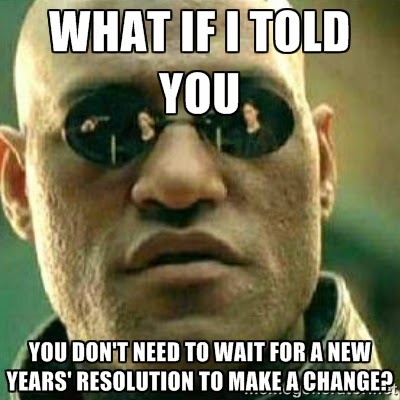A few months ago we saw an ugly America.
The election season was almost depressing to watch.
It brought out the worst of this country. It brought out the worst in everyone. But sadly, the 2016 election is simply an epitome of a problem that NO ONE is talking about. And, along with me, you're probably guilty...
We're guilty of lowering our standards.
But before we dive into that, a Public Service Inquiry:
When did it become our civic duty to do things just a little bit worse than the generation before us? Or maybe there's a bigger question at hand... When did it become socially acceptable to continually lower the bar?
That's the culprit, right? The decline of standards? We keep lowering the bar and thus keep paving the path for a moral and social decline for our kids and our kids' kids.
That's the culprit, right? The decline of standards? We keep lowering the bar and thus keep paving the path for a moral and social decline for our kids and our kids' kids.
Again, I'm guilty of it, so I'm certainly not pointing fingers if you're guilty, too. Sometimes it may just be a core value we compromised for a split second. But I think it's obvious, those split seconds have accumulated into a societal blunder. Examples?
When did it become not OK to respect our elders? I'm sure you've noticed that respect has flip-flopped so drastically that teenage behavior blatantly disrespects the older population.
Let's read some dating articles in women's magazines: They are begging for chivalry to make a return. When did it become ok to not date with gentlemanly behavior?
Disobedience or disruptive behavior in a classroom used to mean student discipline- at the very least, a name on the board. When did it become OK to blame the teacher?
Look at Tinder. Now we're dating and meeting people before knowing the slightest bit about the other person. Oh, did I sugar coat that? I meant sleeping with people before knowing the slightest bit about them. Where did our individual standards go?

Why do we live in a free country where most memes make more sense than our politicians?
There are 300 Million people in our country, and the top two choices for PRESIDENT OF THE
UNITED STATES were a liar and an egomaniac. These 2 clowns laid the platform a for a hateful pillow-fight where the only weapons used are 'proof' as to why the other candidate is 'more worser.' Oh, Donald Trump talked badly about women? Yeah, well Bill Clinton got adultery sex in the Oval Office...in an all trailer park battle of who is a just a bit rapier. How sad that our most powerful position has more name calling and back stabbing than an 8th grade class president election?
The sad part is that we don't have answers to any of this. So in lieu of digging for answers, we place blame. And who is up next? Ah, yes...Step forward, Millennials. Your elders need target practice.
If this country was a giant High Jump competition, we're doing it wrong. IF someone jumps over the bar at 3-foot, 6-inches, then we are supposed to raise the bar to 3'7". A higher bar equals higher standards. Higher standards demand everyone works harder to achieve new heights and strives to meet new challenges.
Instead. When someone jumps over 3'6", society muddles together over $6 coffee and makes a case to lower the bar to 3'5" because people might actually have to work for 3'6".
So where does it stop? How low do we go?
YOU may or may not be able to lead higher bars for the general public, but you can start by setting higher standards for yourself and how people treat you. Higher standards means loftier goals and ultimately a better, more refined you.
Part 1 (the ugly overview) is over & out. Stay tuned for Part 2. Start thinking about the 'Better You.'
~Coach Jake
P.S. Are you ready to start raising the bar for yourself? Check out www.MaximalMe.com or email TotalLifeCoachJake@gmail.com to find out how.



.jpg)


